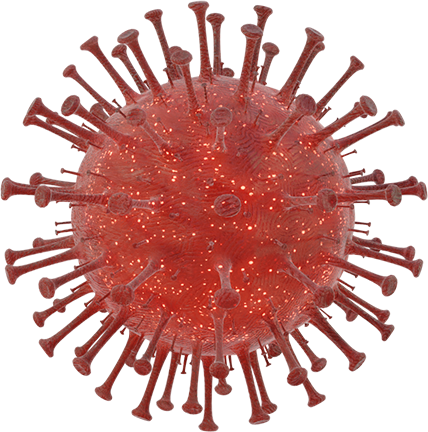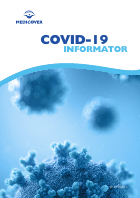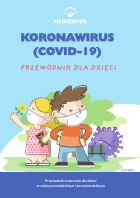What is COVID‑19?
It is an infectious disease caused by the SARS‑CoV‑2 virus, a novel coronavirus. Infected people develop mainly respiratory symptoms or are asymptomatic.




How can one get infected?
You can get infected through:
Direct contact with respiratory droplets carrying infectious virus
(sneezing, coughing or breathing out while talking)
Close contact with an infected person
(hugging, kissing, using the same items and sharing food)
Touching surfaces, documents and items
(on which the virus is present and transferring it with your hands to your face)
Shaking hands with a person infected with SARS‑CoV‑2
COVID‑19 symptoms
- In adults
- In children
Initially, the symptoms are mild, but they become more severe over time.
The disease in children appears to be relatively mild.
Children are often asymptomatic and if symptoms are present they are less specific than in adults.
The fever is usually lower than in adults (up to 37.5°C) and shorter in duration.
Sometimes vomiting and diarrhoea may also occur.
Do you suspect you have COVID‑19 symptoms
or have had close contact with someone with COVID‑19?
You must:
Stay at home and contact your Medicover doctor by phone.
Call the National Health Fund helpline to learn what to do when you suspect that you are infected with coronavirus (800 190 590) or contact a National Health Fund primary care physician if you do not have a subscription with Medicover.
Avoid public transport and contact with other people.
Note: even if you are not covered by the National Health Fund insurance, during the pandemic you can receive health care services in the public sector free of charge.






